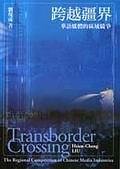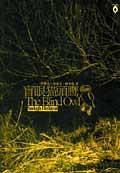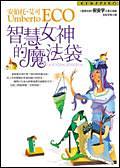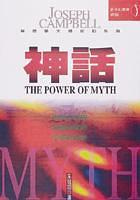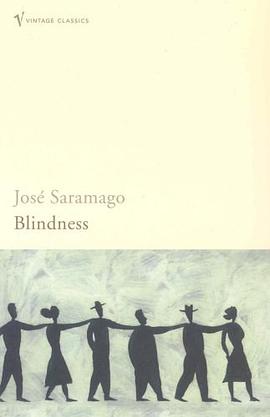

具体描述
Winner of the 1998 Nobel Prize for Literature. A city is hit by an epidemic of 'white blindness.' The blindness spreads, sparing no one. Authorities confine the blind to a vacant mental hospital secured by armed guards. Inside, the criminal element among the blind hold the rest captive: food rations are stolen, women are raped. There is one eyewitness to this nightmare who guides seven strangers through the barren streets. The developments within this oddly anonymous group -- the first blind man, the old man with the black eye patch, the girl with dark glasses, the boy with no mother, and the dog of tears -- are as uncanny as the surrounding chaos is harrowing. PA parable of loss and disorientation, of man's worst appetites and hopeless weaknesses, Blindness is one of the most challenging, thought-provoking, and ultimately exhilarating novels published in any language in recent years.
作者简介
José de Sousa Saramago (pronounced [ʒuˈzɛ sɐɾɐˈmagu]) was a Nobel-laureate Portuguese novelist, playwright, and journalist. He was a member of the Portuguese Communist Party.
His works, some of which can be seen as allegories, commonly present subversive perspectives on historic events, emphasizing the human factor rather than the officially sanctioned story. Saramago was awarded the Nobel Prize for literature in 1998. He founded the National Front for the Defense of Culture (Lisbon, 1992) with among others Freitas-Magalhaes. He lived on Lanzarote in the Canary Islands, Spain, where he died in June 2010.
A foundation with his name was established in 2007; its main aims are cultural promotion, particularly of Portuguese literature and authors. The José Saramago Foundation is currently based in Casa dos Bicos, a Portuguese landmark building in Lisbon. Saramago's house in Lanzarote is also open to the public.
José Saramago, together with his wife Pilar, were the subject of the award-winning documentary José e Pilar, providing us with a glimpse into their love story and life, as he was writing his A Viagem do Elefante.
目录信息
读后感
内心的失眠才是最可怕的 这本书的作者是若泽-萨拉马戈,葡萄牙文坛巨匠,1998年诺贝尔文学奖获得者。获奖作品就是我现在刚读完的《盲目》(即《失明症漫记》)。这也是我第一次读萨拉马戈的小说,以前常听人推荐萨拉马戈的《修道院纪事》,但由于他是葡萄牙作家,对葡萄牙一直...
评分网上说,萨拉马戈的《失明症漫记》很容易让人联想到加缪的《鼠疫》。我对《鼠疫》印象不深,反而联想到几本跟“失去”有关的书,如莫迪亚诺的《暗铺街》中失忆的人,安部公房的《砂之女》和《燃烧的地图》中失踪的人,卡夫卡的《变形记》中失形的人,还有各种失恋,失败,失眠...
评分随写几句。 此书是我读的第一本葡语翻译过来的小说。之前买过一本《惶然录》,韩少功译本,不是小说,都是类似日记的随笔,一直拖着没有读完。这本书断断续续读了一个月,读得很粗,可算是读到了结尾。 作者的创意真好啊。全世界失明这个点子,据说是作者治疗眼疾时想出来的。...
评分一 “肉眼上的失明,代之以灵性的视域,足以补偿”。 受荷马、弥尔顿和博尔赫斯的干扰,人们往往把失明看作是另一种光明的开启,与一种超自然的力量拉上关系。富有讽刺意味的是,《失明症漫记》中,当整个城市都失明了,社会没有开启我们期盼的“另一种光明”。社会秩序迅速垮...
评分在萨拉马戈那里,黑暗被取消了两种基本特征,一来它没有由光明渐渐衰弱的过渡阶段,二来在人类的惯常的感知中,它的物理形态反而被强烈的白色所替换,所以在《失明症漫记》中,失明没有博尔赫斯那样的如黄昏徐徐降临的诗意,也没有对黑暗的传统恐惧,但是对于光明的强烈向往却...
用户评价
我从未读过如此令人心悸地探讨“秩序与混乱”对立统一的文本。作者似乎对人类社会赖以维系的那些看不见的支撑点怀有深刻的怀疑。书中对社群瓦解过程的描摹,不是那种宏大叙事下的崩溃,而是从最微小的、最日常的行为规范开始,一步步被侵蚀、被遗忘的过程。那些曾经被奉为圭臬的道德准则,在生存的重压下变得像易碎的玻璃一样不堪一击。这种对社会契约的解构,极其冷静,甚至带着一种近乎手术刀般的精准。然而,也正是在这片荒芜之中,作者却又植入了对“爱”与“责任”近乎偏执的坚持。这种矛盾性——一边是彻底的虚无主义式的审视,一边是对个体情感价值的坚守——让整个故事充满了令人窒息的哲学张力。它迫使我们思考,支撑我们前行的,究竟是外部的法则,还是内心深处那点微弱却顽固的火苗。
评分这本书的结构设计简直是一场精妙的解构主义实验。它摒弃了传统叙事中对清晰逻辑和线性时间的依赖,转而采用了一种碎片化、多视角的拼贴手法,如同在黑暗中摸索前进的我们,只能依靠不完整的感官碎片来重构世界的全貌。这种叙事方式极具挑战性,初读时可能会让人感到迷失和困惑,但一旦适应了这种“失序之美”,便能体会到其中蕴含的巨大张力。作者似乎在故意模糊现实与梦境的边界,让读者也一同体验那种认知上的混乱与重塑。特别是那些突如其来的、极富象征意义的意象,它们如同黑夜中的闪电,短暂地照亮了某个深刻的隐喻,然后又迅速隐没,留给我们无尽的解读空间。这本书更像是一种体验,而非单纯的阅读,它强迫读者放下既有的阅读习惯,用一种更原始、更直觉的方式去感受故事的内核。
评分这本书最让我震撼之处,在于它将极端的个体经验,提升到了具有普遍性的寓言高度。它讲述的不仅仅是一个群体遭遇的灾难,而更像是一部关于人类精神史的隐喻。故事中人物的反应,看似是本能的求生欲驱动,但细想之下,却能看到历史长河中无数次群体无意识行为的缩影。作者高明地回避了对“原因”的过度解释,将焦点完全集中于“后果”及其带来的心理重构。这种处理方式赋予了作品超越特定时空的永恒性。读者的代入感极为强烈,我们仿佛不是在阅读一个虚构的故事,而是被拉入了一场关于“何以为人”的终极测试。读完合上书本,世界并未恢复如初,它被永远地标记上了某种深刻的印记,让你开始以一种全新的、更审慎的目光,去审视那些习以为常的、习以为常的“光明”与“秩序”。
评分这本书的叙事如同一个迷宫,引人深入却又让人感到一丝挥之不去的焦灼。作者的笔触细腻而又充满力量,描绘了人物在极端环境下的挣扎与人性光辉的微弱闪现。我尤其欣赏他对环境细节的刻画,那种仿佛能透过纸张触及到的、令人窒息的氛围营造得极其成功。故事的节奏把握得非常精准,时而如平静的湖面泛起涟漪,让人稍作喘息,时而又如同山洪爆发般,将读者卷入无法抗拒的洪流之中。角色之间的互动,那种在绝境中互相依存又互相猜疑的复杂情感,被刻画得入木三分,让人不禁反思在生命受到根本性威胁时,我们究竟还能剩下多少“人性”的底色。每一次看似微小的决定,都像投入湖面的石子,激起的波纹深刻地影响着后续所有人的命运轨迹。读完之后,那种挥之不去的压抑感和对生存本质的深思,久久不能散去,它不是那种读完就忘的消遣之作,而更像是一次对自我精神疆界的严酷审视。
评分从文学风格上讲,这本书的语言运用达到了出神入化的地步,它拥有古典文学的凝练,却又充满了现代主义的疏离感。作者对于环境氛围的渲染,尤其擅长运用感官剥夺后的替代性感知。那些通过声音、气味甚至皮肤触觉来描绘的场景,其丰富程度远超视觉信息本身所能提供的。你会感觉到文字本身似乎被赋予了一种特殊的质地和重量,每一个词语的选择都经过了千锤百炼,绝无冗余。这种对语言的极致锤炼,使得文本本身也成为了一种挑战——挑战读者去倾听那些未被言说的部分。在某些段落,叙述的密度高到令人窒息,需要反复回读才能捕捉到其间隐藏的细微转折。这无疑是一部需要沉下心来,带着敬畏之心去研读的力作,其文字的韵律和力量,足以在文学史上留下深刻的印记。
评分驚人之作。
评分#道长荐书#道长快把这本书的后续吐出来啊!别鸽了!设想很有趣,承载文明的基础,是不是能看到不文明的眼睛?隔离的那一段,竟然令人心惊的复刻了很多此次疫情之下的现实,仿佛作者的思想实验,超越了时空,剥离了表面文明下的人性。医生的妻子扮演着“救世主”,到底是怜悯,责任,慈善,还是微妙的处于人上的利他的优越感?Interesting
评分驚人之作。
评分“There must be a government, said the first blind man, I'm not so sure, but there is, it will be a government of the blind trying to rule the blind, that is to say, nothingness trying to organize nothingness.” 全篇堆砌run-on句我一个语法junkie还很喜欢。
评分"I don't think we did go blind, I think we are blind, blind but seeing, blind people who can see, but do not see./Let's all keep quiet, there are times when words serve no purpose, if only I, too, could weep, say everything with tears, not have to speak in order to be understood./the eye that refused to acknowledge its own absence."
相关图书
本站所有内容均为互联网搜索引擎提供的公开搜索信息,本站不存储任何数据与内容,任何内容与数据均与本站无关,如有需要请联系相关搜索引擎包括但不限于百度,google,bing,sogou 等
© 2026 book.wenda123.org All Rights Reserved. 图书目录大全 版权所有






